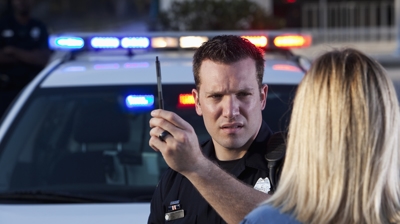Understanding Juvenile Offenses in Southern California
California’s criminal justice system has the difficult task of enforcing laws and imposing punishment upon individuals who commit crimes. Throughout the state and across Orange County, our criminal justice system also deals uniquely with juveniles who are charged with committing a criminal offense. Because juveniles are under the age of 18, their cases require specialized attention.
If your son or daughter is currently included in a juvenile delinquency case in Orange County, this means that he or she is not only in trouble, but they’re being accused of breaking the law. In this situation, the court is going to be examining the specifics of your child’s case, such as your child’s age, the seriousness of the crime, and whether your son or daughter has a criminal record.
Has your child been charged with a juvenile crime in Orange County? Call our firm today for a FREE case evaluation!
Common Juvenile Crimes in California
In California, there are certain crimes the juvenile justice system sees more often than others, including:
- Shoplifting
- DUI
- Drug crimes, including drug possession
- Minor in possession of alcohol
- Public intoxication
- Trespassing
- Vandalism
- Petty theft
These crimes are common, as juveniles can be prone to rebellion and may not always understand the consequences of their actions. That does not mean that these crimes are not without their punishment, and it does not mean that prosecutors won’t aggressively charge and penalize juveniles who commit more serious theft, sex, or violent crimes. In fact, juveniles can be charged as adults in certain situations.
Steps to Take If Your Child is Arrested
Whenever a minor is arrested any number of things can happen: The police can record the arrest and send the child home. The child can be sent to an agency that will counsel and care for the child. The child can be “cited back” to the police station. Meaning, he or she is told to come back to the station.
Additionally, the child’s parents and the child can be given a Notice to Appear, or the child can be placed in juvenile hall in what’s called “detention.” If this happens, your child can make at least two calls within the first hour of being arrested. One call has to be to a parent, guardian, family member or boss. The second call has to be to an attorney.
For minors age 15 or younger, by law, they are supposed to talk to an attorney before they waive their Miranda Rights or talk to the police.
After the court carefully evaluates your child’s case, it can order:
- Your child is to continue living at home but under the court’s supervision.
- Your child is to be placed on probation, but he or she may not be allowed to live with you. Your child to go live in a foster home, with a family member, or in an institution.
- Your child is to be placed on probation and sent to live someplace else, such as a ranch or camp for troubled youth.
- Your child is to be housed in the Department of Corrections and Rehabilitation, Division of Juvenile Justice.
If your son or daughter is tried in adult court, he or she will be treated like an adult. Meaning, they can be sent to the Department of Corrections and Rehabilitation, Division of Adult Operations, to carry out their sentence.
Understanding Adult Criminal Court for Minors
While the answer depends on the facts of the case, yes, it is possible that your child will be tried in adult criminal court. If your child is tried as an adult, this means that he or she will be subject to adult punishment if they are found guilty.
Under California’s three-strikes law, when minors commit certain serious and violent crimes, they can be counted against the minor as a “strike” down the road, even if the juvenile’s records are sealed.
In California, children as young as 14 years of age can be tried as an adult when they commit serious crimes. One of the reasons this age has been set so low is because gangs have been recruiting youth to commit serious violent crimes.
By lowering the minimum age for adult court, youth are deterred from committing gang-related crimes. Examples of crimes that can cause a minor to be tried as an adult:
- Rape
- Arson (with people inside the building)
- Drug crimes
- Crimes involving guns
- Carjacking and kidnapping
- Armed robbery
- Attempted murder and murder


.2503261916014.jpg)

